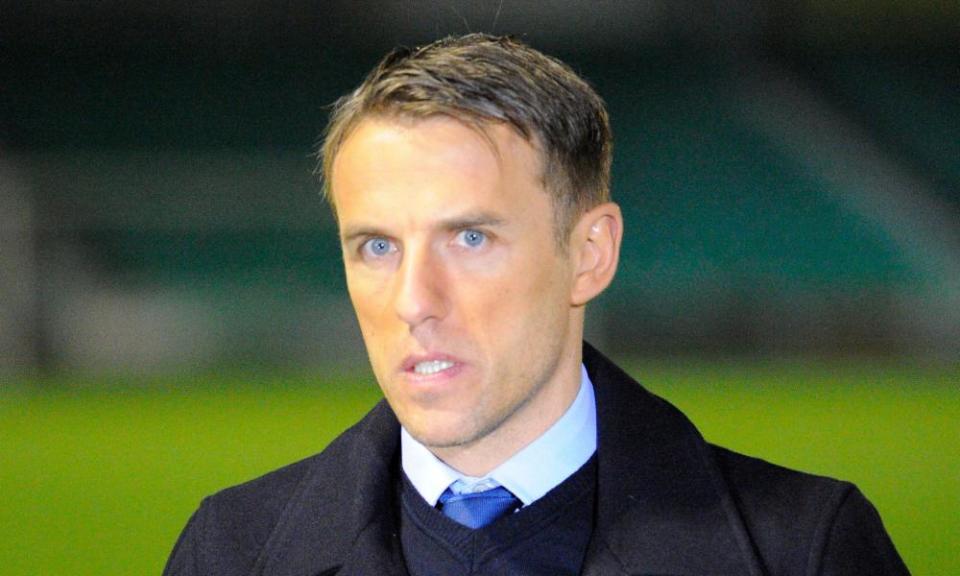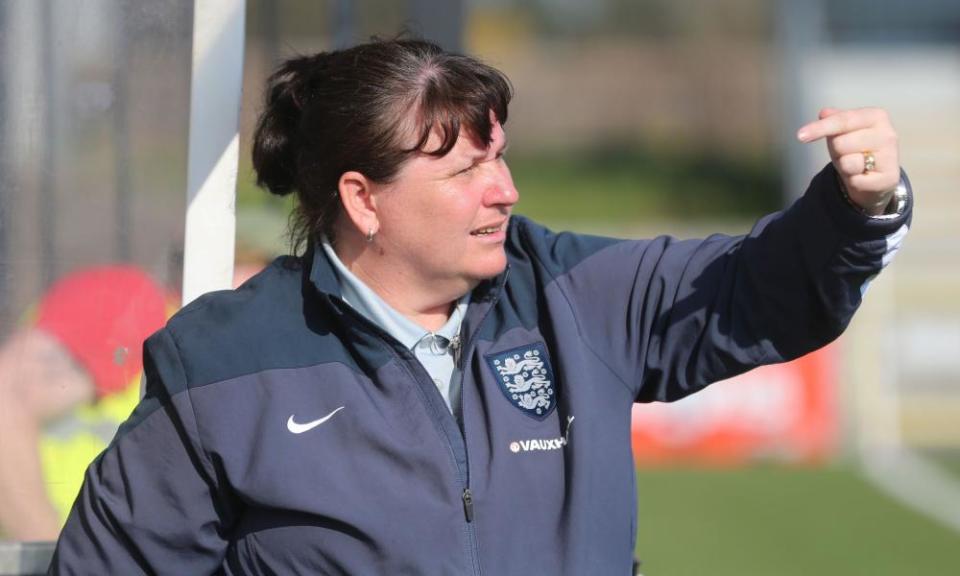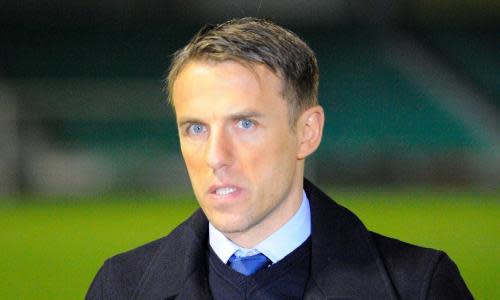Phil Neville appointment a kick in the teeth for better qualified coaches

A damning indictment of the Football Association’s recruitment process? A kick in the teeth for those who have done the hard yards in the women’s game? A devaluation of the coaching profession? Or yet another case of jobs for the boys?
There is, of course, a chance that Phil Neville’s left-field appointment as the new manager of the England women’s team could yet come to be seen as brilliantly inspired. If so, it would surely be down to luck rather than judgment on the part of Martin Glenn, the FA’s chief executive, and his fellow selectors.
Though Neville played for Manchester United, Everton and England, he has zero experience in the women’s game. If he were an experienced men’s manager that would be irrelevant but Neville has, bar one game as Salford City’s caretaker, never taken charge of a male team either.
READ MORE: Phil Neville appointed as England Women manager
READ MORE: Phil Neville hit by Twitter storm just hours after taking England Women job
READ MORE: Exclusive - Liverpool make bid for Brazil starlet as Klopp eyes a new South American legend
Granted, he is a pro-licence holder and has worked, briefly, in backroom roles at Manchester United under David Moyes and Valencia under his brother Gary. There has also been some involvement with England’s men’s Under-21s but the 41-year-old has hardly assembled a substantial body of work. Moreover, no one knows whether he is actually suited to frontline management.
Considering the FA is anxious to win the 2019 World Cup in France it is taking a high-stakes gamble. Several suitably qualified candidates were interested but some either dropped out of the running or never applied after concerns over potentially intrusive scrutiny of their private lives.
In a game which has only recently started to turn professional, relationships between coaches (both male and female) and players have traditionally been relatively commonplace. In a part-time or, sometimes, semi-professional world, few eyebrows were raised.
Mark Sampson’s sacking, broadly on the grounds of his having had a six-month relationship with a player in an earlier job at Bristol Academy (now Bristol City), has not only led to the former coach taking legal action for unfair dismissal against the FA but worried some coaches. There were fears they might be at the mercy of a whistleblower being a phonecall away from telling the FA about an “inappropriate” past liaison.

Mo Marley is among those said to have had no cause for such worries, which rather begs the question as to why the FA appointed Neville in preference to Sampson’s highly experienced interim successor? Quite apart from being a pro-licence holder Marley, who applied for the post, previously led Everton women to FA Cup glory.
The fall-out pits Neville against some formidable international counterparts. These include Sarina Wiegman, who led the Netherlands to Euro 2017 triumph after emerging from a pioneering Dutch development programme in which she had coaching placements with Sparta Rotterdam’s men’s teams. Then there is France’s ground-breaking Corinne Diacre. Until last summer she coached the men of Clermont Foot in Ligue 2.
Sampson, a talented coach who arrived at the FA after leading Bristol to unexpected heights and lifted England to No 1 in the European rankings and No 3 in the world, was at ease in such company. They respected his achievement in reaching the semi-finals of Euro 2017 and the 2015 World Cup in Canada.
Wiegman and Diacre possibly expected John Herdman to succeed Sampson. The Consett-born coach did well with Canada women and, before that, New Zealand but, aware of his presence on the FA’s shortlist, the Canadians swiftly placed him in charge of their men’s side.
There was, though, a strong case for the FA appointing a woman. Significantly, out of the four World Cups, four Olympics and five European Championships since 2000 all bar one have been won by teams managed by women.
Accordingly the FA might have been expected to go all out to hire Portsmouth-born Jill Ellis, who managed the United States 2015 World Cup success, or Silvia Neid, who presided over Germany’s gold medal at the Rio Olympics; or at least to make an audacious attempt to poach Wiegman. Then there is Florence Omagbemi who choreographed Nigeria winning the Women’s African Nations Cup.
Emma Hayes, Chelsea’s highly rated, currently pregnant, coach, was never interested in the job, Manchester City persuaded Nick Cushing to stay put and the gifted former Arsenal manager Laura Harvey remained in the US where she now coaches Utah Royals.
Sampson was found to have made two racially discriminatory comments to Aluko and Drew Spence but the majority of the England squad remained supportive of him. The consensus in the wider women’s coaching community seems to be that, while the FA mishandled Aluko’s complaints appallingly, they also threw Sampson under a bus.
The fallout from the Sampson case arguably cleared the way for Neville. Wiegman, Diacre and friends will doubtless relish pitting their wits against him.

 Yahoo Sport
Yahoo Sport 












































